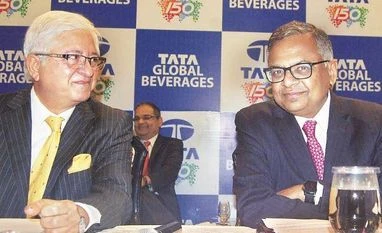Tata Motors and its UK-arm JLR are preparing to leverage on India's growth potential but they face diverse 'dynamics' in other key global markets requiring 'specific interventions' to ensure sustainable profitable growth, according to company Chairman N Chandrasekaran.
Uncertainty due to market cyclicality, regulatory restrictions on diesel, Brexit and taxation in the UK pose specific challenges in Europe, he added.
Addressing shareholders in the company's Annual Report for 2017-18, Chandrasekaran said, "The global automobile industry is undergoing a structural shift due to technology-led business and market disruption, evolving consumer preferences, market cyclicality, regulatory overhauls and geopolitical uncertainty."
The ACES (autonomous, connected, electric, shared) phenomenon is likely to transform mobility and influence consumer preferences going forward, he added.
Tata Motors and Jaguar Land Rover (JLR), Chandrasekaran said, "are together, preparing to leverage growth potential of the Indian economy, while facing the headwinds of uncertainty due to market cyclicality, Brexit and the decline in diesel demand."
He further said, "Some of the key operating markets for the group are faced with diverse market dynamics requiring specific interventions to ensure sustainable profitable growth."
Elaborating, he said North America is nearing the peak of the demand cycle and growth is likely to remain muted in the near term.
"While regulatory restrictions on diesel, market cyclicality, Brexit and taxation in UK pose specific challenges in Europe and UK, key Asian markets of China and India offer high growth opportunities led by GDP growth, strong domestic consumption and favourable demographic support," Chandrasekaran said.
On India, he said the automotive industry is now the fourth-largest in the world by production and by 2026 it is expected to be the third largest automotive market in the world.
Also Read
The country's annual production in 2017-18 grew at 14.8 per cent year-on-year.
"This sector is well positioned for growth, given low rates of auto penetration, rising incomes and increasing affordability," Chandrasekaran said.
In addition, he said,"We expect to see government policy supporting auto growth through lower excise duties and the National Electric Mobility Mission Plan 2020."
He, however, said, "the Indian auto industry is not without its challenges".
These include adapting to a structural shift towards electric vehicles (EVs), shared mobility options with ride-sharing permeating the urban landscape, a pan-India shift to Bharat Stage-VI emission by 2020 and enhanced safety norms.
"As such, we (Tata Motors) will have to be more agile than ever and work towards being future-ready," he said.
On JLR, he said the British arm has been setting "new standards for engineering excellence with the introduction of new automotive technologies and advanced design".
"The company also announced its electrification roadmap to address diesel challenges," he said, adding JLW would also focus on optimisation and manage capital spends prudently to offset the impact of headwinds facing the business.
)